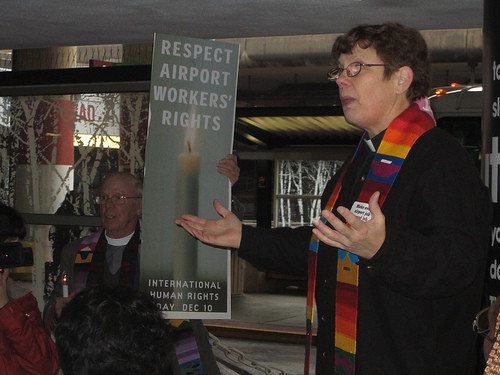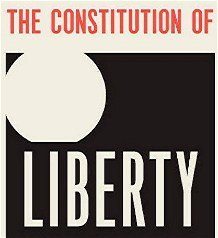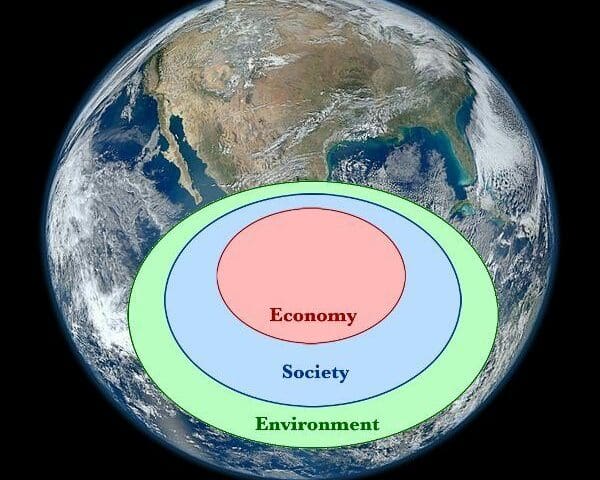

According to the New York Times’ DealBook page, insurance giant American International Group announced today it will not join a shareholder lawsuit against the same federal government that had rescued it from extinction during the 2008 financial meltdown.
The suit, led by former AIG CEO Maurice R. Greenberg, is seeking $25 billion, alleging that the government’s “onerous” bailout terms prevented shareholders from making billions of dollars as the company emerged from its financial coma.
The Times noted that “A.I.G. directors faced a difficult choice.” That’s putting it mildly, as AIG found itself confronted by a PR firestorm in the days leading up to its decision, when both public and congressional outrage mounted over the company’s possible involvement in the suit. If the company joined the suit, it would have looked like the man who sues the fire department that saved him from a burning home but didn’t return to fetch his stamp collection.
» Read more about: AIG on Suing U.S. Government: “Never Mind” »


December 12 marked the 65th anniversary of the United Nations’ Universal Declaration of Human Rights. Probably most of us think first of human rights on the political level: the rights of people, especially of political prisoners across the world, to speak, assemble and write, free of government constraint.
In Seattle a group of about 100 workers, community, labor and faith leaders celebrated Human Rights Day at Seattle International Airport (SEATAC) in a different context. We were there in support of airport workers subcontracted by Alaska Airlines, which is based here: baggage handlers, wheelchair operators, cabin cleaners and aircraft fuelers. As we paraded by the Alaska ticket counters we adapted and chanted phrases of the U.N. Declaration: “…May everyone have the right to just wages…May everyone have the right to human dignity.
Socrates, a baggage ramp employee who works for Menzies Aviation, the subcontractor (and a multinational company that contracts with airlines in 29 countries),
» Read more about: Restless in Seattle: Airport Workers Seek Dignity »


Progressives are rarely satisfied. It is part of our political DNA. There’s so much injustice in the world, it’s sometimes hard to feel that we’re making progress. But as Chinese philosopher Laozi reminded us, a journey of a thousand miles begins with a single step.
As I document in my book, The 100 Greatest Americans of the 20th Century: A Social Justice Hall of Fame, the radical ideas of one generation are often the common sense of the next generation. One hundred years ago, ideas like Social Security, the minimum wage and women’s suffrage were considered radical. Fifty years ago, most African-Americans in the South couldn’t vote, few women were welcome in politics and many professions, and all but a handful of gays and lesbians were locked in the closet. In other words, if we take a long view, we can see that things do often change for the better,
» Read more about: Peter Dreier’s Top 25 Progressive Victories of 2012 »


Using data from the American Consumer Satisfaction Index, Business Insider writer Max Nisen has compiled a list of companies with the worst customer service ratings. (This came to us via LA Observed.) Read and weep! It’s not as though many people can easily avoid these outfits – they tend to be regional monopolies or dominant companies in their fields.
In order of unhelpfulness, they are:
1. Long Island Power Authority (color them Sandy)
2. Northeast Utilities (New England)
3. Charter Communications Television Service
4. Comcast Television Service
5. Facebook
6. United Airlines
7. Time Warner Cable
8. LinkedIn
9. Cox Communications Television Service
10. American Airlines
11. Twitter
12. US Airways
13. Delta Airlines
14.
» Read more about: Customer Service: The 15 Worst Companies »


 There’s a moment in Mordecai Richler’s novel, The Apprenticeship of Duddy Kravitz, in which a Montreal old-timer rapturously recalls the early rise of a shady neighborhood businessman:
There’s a moment in Mordecai Richler’s novel, The Apprenticeship of Duddy Kravitz, in which a Montreal old-timer rapturously recalls the early rise of a shady neighborhood businessman:
“All that time he’s collecting streetcar transfers off the street and selling them, see. Nerve? Nerve.”
Yesterday Americans began reading about a different kind of business nerve. According to the New York Times and other sources, American International Group, the insurance titan and poster child for government bailouts of the financial sector, is considering suing the very government that loaned it $182 billion. AIG’s legal thinking is that, while it was all very good of the Treasury Department and Federal Reserve Bank of New York to come to its rescue, the terms of that rescue inflicted unfairly high losses on the company’s shareholders.
All this comes during a publicity campaign in which AIG has been thanking Americans for saving its skin during the 2008 economic meltdown that led to a long recession.


 Progressive commenters reeling from the “right to work” defeat in Michigan have in turns unmasked and (grudgingly) admired proponents of the new law. The unmasking is fairly easy. Michigan governor Rick Snyder actually unmasked himself. After claiming that he was a moderate who would avoid polarizing fights, he pounced on the opportunity to jam “right to work” through a lame duck legislative session. And the policy itself is not hard to expose. “Right to work” is portrayed by proponents as freeing unwilling workers from paying union dues. But as many critics have pointed out, its wealthy proponents’ main purpose is to hobble labor by allowing some workers not to pay for the representation and protection unions are legally obligated to provide them.
Progressive commenters reeling from the “right to work” defeat in Michigan have in turns unmasked and (grudgingly) admired proponents of the new law. The unmasking is fairly easy. Michigan governor Rick Snyder actually unmasked himself. After claiming that he was a moderate who would avoid polarizing fights, he pounced on the opportunity to jam “right to work” through a lame duck legislative session. And the policy itself is not hard to expose. “Right to work” is portrayed by proponents as freeing unwilling workers from paying union dues. But as many critics have pointed out, its wealthy proponents’ main purpose is to hobble labor by allowing some workers not to pay for the representation and protection unions are legally obligated to provide them.
As for the admiration, well, there is much to be learned from the planning and persistence of the rich donors and think tanks for whom spreading “right to work” laws beyond the former Confederacy has long been an aspiration.


“From the Ground Up” (or FTGU) is a new monthly video collaboration between LAANE’s Construction Careers Project and the UCLA Labor Center’s California Construction Academy (CCA). This series will show the fascinating, real-life stories related to construction, one of the best paths to middle-class opportunities for low-income communities in an era of globalization and education budget cuts.
FTGU will be profiling unique, diverse individuals within the construction trades, ranging from veterans to women to former convicts to youth of different incomes and ethnicities. We will also bring together experts on the construction industry, urban planners, economic theorists and others to look at the bigger picture of how construction jobs that build tomorrow’s public infrastructure can impact residents’ lives and, ultimately, our economy.
In this first video we interview Philip and Rich, two former veterans-turned-construction workers in Inglewood and Lakewood. Philip’s military experience and kids led him to sheet metal work, which has helped him find a greater sense of inner peace.
» Read more about: Vets: Be All You Can Be With Construction Jobs »


Many younger Americans probably know very little about Eleanor Roosevelt, and if their first encounter with her is the new film Hyde Park on Hudson, what they’ll learn is incredibly misleading and inaccurate. Other films – including Sunrise At Campobello (1960), the two-part Eleanor & Franklin HBO mini-series (1976), Eleanor, First Lady of the World (1982) and Warm Springs (2005) – have depicted different aspects of her life. But Hollywood can’t seem to make a film that accurately portrays the depth and influence of Eleanor’s radicalism.
Hyde Park on Hudson focuses on the relationship between her husband, President Franklin Roosevelt (played by Bill Murray) and his distant cousin Margaret “Daisy” Stuckley (Laura Linney) during a weekend in 1939 when the King and Queen of England are visiting the Roosevelts at their second home in upstate New York. The film shows FDR and Stuckley having a sexual love affair,
» Read more about: Eleanor Roosevelt: Still Waiting for Her Closeup »


Many of us felt a Capra-esque glow the morning after Election Day, happy that the Little Guy had triumphed over Big, Dark Money. And, to be honest, there was also more than a little schadenfreude to go around – what, with the spectacle of so many right-wing billionaires wasting so much money on their Cro-Magnon candidates. There’s a danger, though, in assuming their losses had taken the fight out of these tycoons – or that their lost millions somehow weakened their future political clout.
The fact is that the hundreds of millions of dollars spent on 2012 elections by the Koch brothers, Jerry Perenchio and others were little more than paper cuts to these men. They could probably recoup all their losses in a day by raising the cost of the oil they refine, or the price of plywood they sell, by an eighth of a cent. Every time you or I fill up our gas tanks or otherwise patronize one of the thousands of enterprises owned by conservative billionaires,
» Read more about: Casino Mogul Doubles Down Against Unions »


Turning over the calendar makes me think about nature. Partly, because it marks the end of one cycle of our lives and the beginning of another. Partly because at our house we literally take one calendar off the wall, look through its photographs of beautiful places, and replace it with a new one with its own photos of the world’s natural beauty that we will uncover one month at a time. The ritual reminds me that the earth is filled with beauty which we humans must sustain because it sustains us.
The problem, of course, is that in our drive for “progress” and “economic growth” we are drawing down too many resources too fast and making messes despoiling not only the earth’s beauty but also her capacity to keep us alive. Every day the news carries stories of waste, trash, unhealthy water, shrinking arctic ice and aberrant weather patterns.
» Read more about: A Sustainable Planet: Roadmaps for Survival »